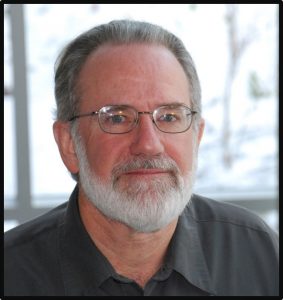
Field Background: Alan Pence’s professional work with children and youth began in 1970 as a teacher at an alternative, inner city high school in the U.S. During that time he became concerned that high school was too late to have a maximally positive impact on a child’s development. That was one of his reasons for helping to establish a University-based early childhood education, care and development (ECD) Centre in 1971. During the 1970s Pence: provided direct care for 3 and 4 year olds; established a high school based ECD and student parenting program; provided training for a five-county rural area that included migrant and First Nations programs; and served as a Head Start CDA trainer and a college instructor. In the late 1970s he founded and directed a seven-site, 200-plus children after-school care program while completing his PhD and commencing a shift to academia in 1981.
Research Background: Prior to 1990 Dr. Pence was primarily involved in Canadian based research addressing the interaction of family, labor force participation, child care, and child development issues. Major projects included the ecologically oriented Victoria, and then the Vancouver, Day Care Research Projects (1981-1990). Those studies were followed by the Canadian National Child Care Study, a collaboration of four Canadian Universities with Statistics Canada that collected and analyzed data from 24,000 families (nine major monographs were published by Statistics Canada). Since 1981 Dr. Pence has served as Principal or Co-Principal for over 80 research and development projects from 25-plus funders worth over 14 million dollars.
Awards: Dr. Pence is the recipient of the Canadian Bureau for International Education’s Award for Educational Leadership, the University of Victoria’s inaugural Craigdarroch Research Award for Societal Contributions, and the ECD Virtual University (ECDVU) program that he developed (see below) was a finalist for the internationally prestigious WISE Awards for innovation in education.
Current and On-going Work: In the late 1980s Dr. Pence’s research interests shifted towards cross-cultural and sociological perspectives on children and their care. He was the Canadian representative to the European-based sociological study of Children in Contemporary Society (1987-1990). In 1989 he was invited by a large tribal council in northern Canada to work with them on developing a culturally and community sensitive approach to post-secondary training in ECE/ECD. That project, the First Nations Partnership Programs (FNPP), and the generative curriculum approach it developed, was subsequently invited to partner with nine other Canadian tribal organizations (see fnpp.org).
UNESCO noted the FNPP as international best ‘practice’. This cross-cultural, partnership work stimulated a broader interest in ECD as a key to development in the Majority (Developing) World. In 1994 Dr. Pence was invited by UNICEF to support their efforts to promote regional capacity for ECD. He organized a series of multi-week ECD Institutes which over time focused primarily on Africa. Planning for one such Seminar, in cooperation with the World Bank, led to the launch of an African ECD Conference series (1999, 2002, 2005, 2009) and funding (in 2000) to develop the Early Childhood Development Virtual University graduate degree program (see ecdvu.org). The ECDVU successfully completed: six deliveries in sub-Saharan Africa (the two most recent in 2016 and 2018 with an African university partner); two deliveries in the Middle East and North Africa (MENA); and one delivery with Indigenous participants in Canada.
Commencing in 2009, Dr. Pence worked with senior colleagues in Africa to promote African Scholarly and Institutional (AS&I) capacity to host SSA-wide and regional workshops in support of African-led research. In 2015 this led to the development of an online Compendium of African Research (ecdafricaresources.org), and a website featuring the Compendium, AS&I and ECDVU initiatives (ecdinafrica.org). Pence is frequently invited to speak internationally (over220 presentations, including 15 non-Canadian Keynotes: 4 (U.S.), 3 (Australia), 2 (New Zealand), 1 each (Singapore, Mexico, Columbia, Kenya, Uganda, S. Africa).
Publications and Statistics: Dr. Pence is the author of over 140 journal articles, book chapters and monographs on a range of education, child development, and child and youth care topics. He has edited four special issue journals and edited or authored fifteen books. One co-authored book, Beyond Quality in Early Childhood Education and Care, has been translated into 13 languages and is included in Routledge’s ‘Classics Editions’ (the only ECD book on that last). A fuller set of publications, organized by themes, can be found on the publications page of this website (a number of which can be downloaded). Google Scholar citations: 10,627.
Sankofa: Appreciating the past in planning the future of early childhood education, care & development in Africa encompasses much of Pence’s decades of work in Africa (Pence, Makokoro, Ebrahim, & Barry, Eds. 2023, Paris, UNESCO).